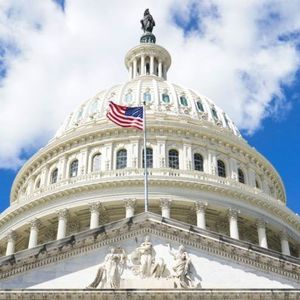The line between traditional finance and the burgeoning world of digital assets is blurring faster than ever. A significant development is currently unfolding, signaling a major step towards regulatory clarity and integration for the crypto industry. Reports indicate that a substantial number of firms are actively pursuing a crypto bank charter from a key U.S. regulator. This move could reshape how digital asset companies operate within the established financial system. Why Seek an OCC Bank Charter? The Drive for Legitimacy According to reports from renowned crypto news reporter Eleanor Terrett on Crypto in America, approximately 15 cryptocurrency and fintech companies have formally applied for bank charters with the U.S. Office of the Comptroller of the Currency (OCC). This isn’t just about getting a fancy title; obtaining an OCC bank charter is a strategic play with significant implications. It grants these firms the ability to operate as regulated financial institutions under federal oversight, potentially unlocking numerous benefits and adding a layer of trust and legitimacy in the eyes of investors, partners, and customers. Think about it – for years, crypto firms have navigated a complex and often uncertain regulatory landscape, operating in a grey area between state and federal rules. Becoming a federally chartered bank provides a clear, unified regulatory framework. This clarity is crucial for growth, enabling these companies to potentially offer a wider range of services and attract more mainstream and institutional clients who require the stability and oversight associated with traditional banks. The Golden Ticket: Accessing the Federal Reserve Master Account One of the primary motivations driving these applications is the desire to secure direct access to the Federal Reserve master account . Why is this so important? Direct Access: Currently, many crypto and fintech firms must rely on intermediary banks to access the U.S. payment system (like FedWire and ACH). This adds costs, delays, and counterparty risk. Efficiency: Direct access allows for faster, cheaper, and more efficient settlement of transactions. This is particularly critical for businesses dealing with high volumes or requiring real-time settlement. Stability: Having a master account provides a direct relationship with the central bank, bypassing potential bottlenecks or restrictions imposed by correspondent banks who may be hesitant to work with crypto-related businesses. Innovation: Direct access can pave the way for innovative new financial products and services built on top of the traditional payment rails, seamlessly integrating digital assets with existing financial infrastructure. Gaining this direct line to the Fed is arguably the most compelling reason for a Fintech bank charter application. It’s about cutting out the middleman and achieving true financial autonomy within the U.S. system. Navigating the Path to a Fintech Bank Charter Applying for an OCC bank charter is not a simple process. It’s rigorous, time-consuming, and requires significant resources. Firms must demonstrate: Sufficient Capital: Meeting strict capital requirements to ensure solvency and stability. Robust Management: Having experienced and qualified leadership and staff with expertise in banking and compliance. Comprehensive Business Plan: A detailed plan outlining the services offered, target market, risk management strategies, and financial projections. Strong Compliance Programs: Implementing rigorous Anti-Money Laundering (AML), Know Your Customer (KYC), and other regulatory compliance frameworks. Risk Management Systems: Demonstrating the ability to identify, measure, monitor, and control various risks, including credit, market, operational, and cyber risks. The OCC scrutinizes every aspect of the application to ensure that granting a charter would not pose risks to the financial system or consumers. Success is far from guaranteed, and many applicants, both traditional and non-traditional, face significant hurdles. Potential Impact on U.S. Crypto Regulation and the Industry The outcome of these applications will have a ripple effect on U.S. crypto regulation and the broader digital asset landscape. If a significant number of these charters are approved, it could: Set a Precedent: Establish a clearer path for other crypto and fintech firms seeking federal regulation. Increase Institutional Adoption: Make traditional financial institutions and large corporations more comfortable interacting with regulated crypto entities. Spur Innovation: Encourage the development of new products that bridge crypto and traditional finance, such as tokenized deposits or instant settlements using blockchain technology within a regulated framework. Enhance Consumer Protection: Bring crypto activities under stricter oversight, potentially leading to better protection for customers. Influence Policy: Inform future regulatory approaches as policymakers gain more experience with regulated digital asset firms. Conversely, if applications are largely denied, it could signal a cautious approach from regulators, potentially pushing some innovation offshore or forcing firms to continue operating through less efficient channels. Who Are These Firms? (Examples & Insights) While the specific names of all 15 applicants are not publicly disclosed at this stage, it’s likely that this group includes a mix of: Crypto Custodians: Companies specializing in securely storing digital assets for institutions and high-net-worth individuals. Payment Processors: Firms building infrastructure for crypto payments or using crypto for faster cross-border settlements. Exchanges: Platforms that facilitate the buying and selling of cryptocurrencies (though the path for exchanges might be more complex depending on their specific business model). DeFi Protocols/Companies: Entities seeking to bring decentralized finance concepts into a regulated structure. Each type of firm has unique needs and faces distinct challenges in fitting into the traditional banking mold, but the common thread is the pursuit of regulatory legitimacy and direct access to core financial infrastructure. A Glimpse into the Future The pursuit of an OCC bank charter by 15 crypto and fintech firms is more than just a regulatory footnote; it’s a strong indicator of the industry’s maturation and its desire to integrate deeply with the existing financial system. While the road is long and approvals are not guaranteed, this trend highlights the growing seriousness with which digital asset companies view federal regulation and the critical importance of access to fundamental infrastructure like the Federal Reserve master account. This development bears close watching, as the success or failure of these applications will significantly shape the future of crypto and fintech within the United States, potentially paving the way for a new era of regulated digital finance. To learn more about the latest crypto market trends, explore our article on key developments shaping Bitcoin institutional adoption.













